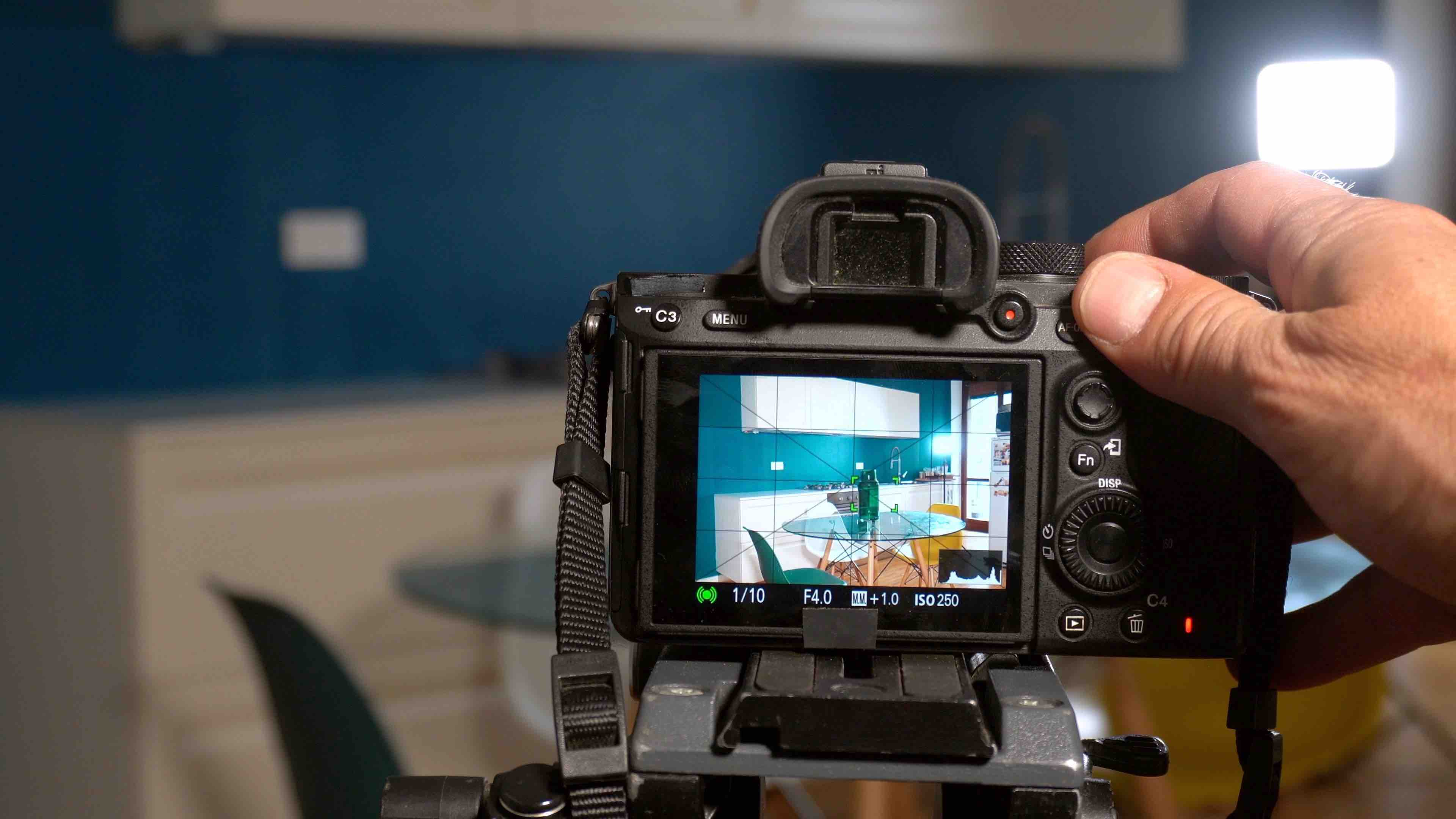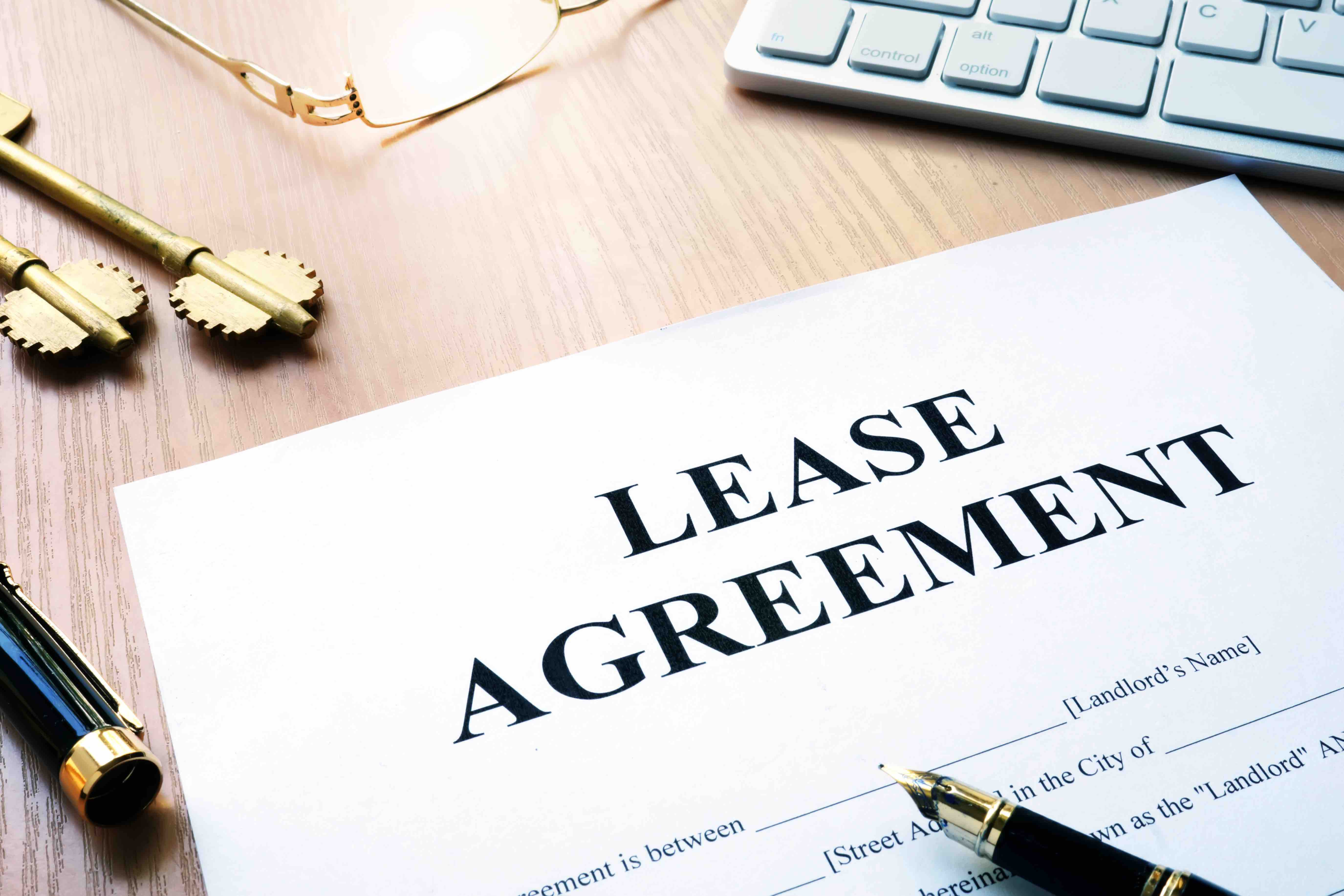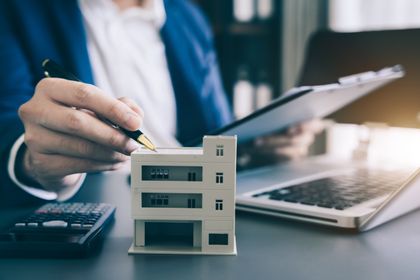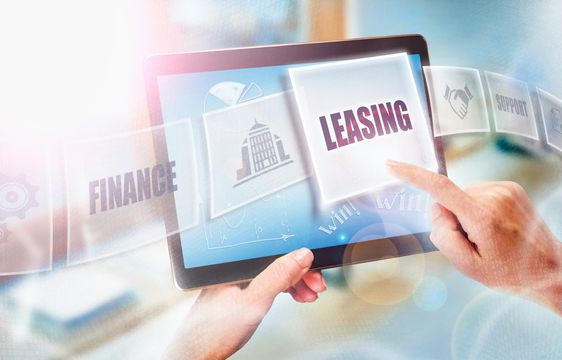
So you’ve decided to embark on the rewarding journey of managing your own rental property. Congratulations! But with great rewards come great responsibilities. Managing a rental property requires a unique set of skills, dedication, and a comprehensive understanding of various aspects involved in the process. Are you prepared to tackle the challenges and reap the benefits? In this blog post, we’ll navigate through the essentials of managing rental properties, from acquiring the necessary skills to dealing with challenging situations, and everything in between. Let’s dive in!
Short Summary
- Essential skills for successful rental property management include communication, organization and knowledge of local laws.
- Prepare your property for renting by conducting inspections, performing repairs/maintenance and making upgrades.
- Effectively market the rental properties online with high quality photos & descriptions. Screen tenants to ensure compliance & protect investments. Handle maintenance requests professionally.
Suggested Posts:
Rental Property Loans: Navigating the Best Options in 2023
The Future of Real Estate: How Proptech is Revolutionizing the Industry
Lease Renewal Letter: Crafting the Perfect Letter to Tenants
Essential Skills for Successfully Managing Rental Properties
To manage rental properties effectively, there are three primary areas that require your attention: tenants, property maintenance, and finances. Mastering essential skills such as communication, organization, and knowledge of local laws not only ensures smooth operations but also contributes significantly to tenant satisfaction when you manage a rental property.
Good communication is key to successful rental property management. Establishing clear expectations and guidelines for tenants.
Communication Skills
In the realm of rental property management, communication is the backbone of success. Effective listening, succinct communication, dispute resolution, and constructing a reliable foundation of communication with tenants and property managers are indispensable skills for managing rental properties.
After all, addressing tenant concerns, negotiating lease agreements, and fostering positive connections with tenants and contractors all hinge upon your ability to communicate effectively and promptly respond to repair requests.
Organizational Skills
As a landlord, you’ll be juggling multiple tasks, such as rent collection, maintenance requests, and lease renewals, which require impeccable organizational skills. By staying organized, you can efficiently address maintenance and repair issues, improving tenant satisfaction and increasing the likelihood of lease renewals.
Moreover, organizing a list of contractors can result in a more expedited response to repair requests.
Knowledge of Local Laws
Being well-versed in local laws is crucial for landlords to ensure compliance with regulations, avert potential legal issues, and safeguard their investment. Familiarize yourself with local ordinances, such as grace periods for late fees and past-due rent notices. Lease renewal options should also be offered 90 days prior to the lease expiration.
Failure to conform to local landlord tenant laws and regulations can lead to legal predicaments and may impact your standing as a landlord.
Preparing Your Property for Renting

Before you can start reaping the benefits of your own rental property, it’s essential to prepare it for renting. This involves conducting inspections, carrying out necessary repairs and maintenance, and making upgrades to attract tenants and maximize rental income.
Let’s explore each of these aspects in more detail.
Inspections
Inspections play a vital role in identifying repairs and maintenance tasks that must be carried out to ensure your property is secure and suitable for tenants. Regular property inspections can help detect minor issues before they become costly and extensive, keeping you informed of the property’s condition, and staving off tenant grievances from the outset.
Following local laws and the lease agreement, inspect under sinks, verify that smoke detectors are functioning properly, replace furnace filters, and observe any visible signs of damage.
Repairs and Maintenance
Repairs and maintenance are crucial in preserving the property’s value and ensuring tenant satisfaction. From fixing leaky faucets to patching up holes in the walls, it’s essential to address any issues promptly and maintain the property in a clean and well-kept state.
Seasonal maintenance on the roof, heating and cooling systems, water heater, and appliances should be conducted. This can both prolong their useful lives and maintain capital expenses in budget.
Upgrades
Investing in an investment property can be highly rewarding, especially when you focus on property upgrades to enhance its worth and draw in tenants willing to pay higher rents. Consider upgrading the flooring, painting, kitchen cabinets, light fixtures, and adding storage to make your property more appealing to potential tenants.
Additionally, minor upgrades such as new cabinet handles, attractive faucets, and DIY room decor can further enhance the appeal of your rental property. Remember, a well-maintained and visually appealing property is more likely to attract quality tenants.
Marketing Your Rental Property

Once your property is prepared and ready to rent, it’s time to spread the word. Effectively marketing your rental property involves creating online listings, showcasing high-quality photos and descriptions, and hosting open houses or showings to attract potential tenants.
Let’s dive deeper into these marketing strategies.
Online Listings
Online listings are platforms that allow landlords to advertise their rental properties to prospective tenants. Websites like Zillow Rental Manager, Apartments.com, Realtor.com, and Craigslist are some of the most effective online listings for marketing your rental property.
By listing your property on these popular platforms, you can increase your property’s exposure and attract a broader range of potential tenants.
High-Quality Photos and Descriptions
High-quality photos and detailed descriptions are essential for showcasing your property’s features and making it stand out from the competition. To ensure captivating photos, take them during the day with natural light and all indoor lights turned on. Additionally, the property should be clean and decluttered, and all rooms should be photographed to showcase unique features.
Complement these photos with a comprehensive description that highlights the property’s amenities, location, and rental rate.
Open Houses and Showings
Open houses and showings provide potential tenants with the opportunity to view the property in person and ask questions, thus increasing the chances of securing a lease. When hosting an open house, ensure the property is tidy and aesthetically pleasing, and provide information about the property, such as the rental rate, amenities, and any other pertinent details.
When arranging individual showings, furnish prospective tenants with a concise timeline and expectations, along with a contact number for any queries or concerns they may have.
Tenant Screening and Selection Process
Finding the right tenant is crucial for a smooth rental property management experience. A thorough process of screening tenants involves conducting background checks, interviews, and reference checks. To find reliable and responsible tenants, it is important to ask the right questions during the interview process. Additionally, it is important to check references.
Background Checks
Background checks can assist in identifying potential warning signs, including criminal records or unfavorable credit history, that could suggest a high-risk tenant. Conducting credit checks, income verification, rental history, eviction history, criminal background checks, and national sex offender checks are essential to gain a comprehensive understanding of the applicant’s background.
Remember, complying with the Fair Credit Reporting Act (FCRA) is crucial when conducting background checks.
Interviews
Interviews play a vital role in assessing a potential tenant’s suitability and compatibility with the property and other tenants. Inquiring about the tenant’s rental history, income, employment, credit score and references during the interview process can provide valuable insights into their reliability and responsibility.
It is important to ask questions that are relevant to the tenant’s ability to pay rent.
Reference Checks
Reference checks from previous landlords and employers provide insight into a tenant’s reliability and responsibility. Contacting potential tenants’ professional and personal references, as well as their previous landlord or property management company, can help you make an informed decision when selecting tenants.
Verifying the authenticity of the references and cross-referencing the supplied telephone number is essential.
Crafting a Comprehensive Lease Agreement

A comprehensive lease agreement is the foundation of a successful landlord-tenant relationship. It outlines the terms and conditions, tenant responsibilities, and landlord obligations to protect both parties and prevent disputes.
The lease agreement should include the length of the lease, the amount of monthly rent, and the security deposit.
Terms and Conditions
The terms and conditions of the lease agreement outline the details of the landlord-tenant relationship, such as the duration of the lease, the amount of rent to be paid, the security deposit, and other pertinent information.
A clear and comprehensive lease agreement is paramount for safeguarding the rights of both the landlord and tenant, ensuring that both parties comprehend their duties and responsibilities, and it assists in preventing disagreements and misapprehensions.
Tenant Responsibilities
A lease agreement should include tenant responsibilities such as timely rent payments, keeping the property in a clean and well-maintained state, reporting any damages or repairs needed, adhering to any rules/regulations set by the landlord, and taking responsibility for utilities and other monthly bills.
Clearly outlining these responsibilities helps to establish expectations and maintain a harmonious living environment.
Landlord Obligations
Landlord obligations in the lease agreement should include providing a habitable unit, ensuring utilities are in good working order, meeting building codes, making necessary repairs, and maintaining common areas. Upholding these obligations is not only a legal responsibility, but also demonstrates a commitment to tenant satisfaction and the protection of your investment.
By ensuring that these obligations are met, landlords can ensure that their tenants are satisfied and that they are satisfied.
Efficient Rent Collection and Financial Management
Efficient collecting rent and financial management are crucial aspects of managing a rental property. Choosing rent collection methods, tracking income and expenses, and utilizing property management software can streamline the process and ensure a smooth experience for both landlords and tenants in the rental business. By focusing on rental property finances, you can optimize your property management strategies and maximize your rental income.
By selecting the right methods to collect rent, landlords can ensure that rent is collected on time.
Rent Collection Methods
Various rent collection methods are available, such as online rent payment systems like Cozy and TenantCloud, as well as apps like Avail which enable tenants to securely transmit payments that will be deposited directly into the landlord’s account. Providing multiple rent collection methods to tenants facilitates their payment of rent and guarantees that landlords receive their payments in a timely manner.
These methods are convenient for both tenants and landlords, as they allow for quick and secure payments.
Tracking Income and Expenses
Tracking income and expenses is essential for assessing your property’s financial performance and recognizing potential areas for enhancement. Accurate record-keeping can save you time and headaches during tax season and help you make informed decisions about your real estate investment.
Various software and apps are available to assist landlords with tracking rental income and expenses, such as AppFolio, Rentec Direct, Buildium, Property Matrix, Landlord Studio, DoorLoop, Quicken Rental Property Manager, FreshBooks, and Stessa.
Property Management Software
Property management software can substantially improve the efficiency of handling rental properties by streamlining financial management, record-keeping, and communication with tenants. Top property management software solutions include Buildium, AppFolio, Propertyware, Rentec Direct, and DoorLoop. These solutions are often used by property management companies to optimize their operations.
Features to look for in property management software include rent collection, tenant screening, lease management, maintenance tracking, and financial reporting.
Handling Maintenance Requests and Repairs

Maintenance requests and repairs are inevitable aspects of managing a rental property. To maintain tenant satisfaction and protect the property, it’s essential to handle these requests with a prompt response. A network of reliable contractors and preventative maintenance are also key to successful property management.
Prompt Response
A timely response to maintenance requests is crucial, as it demonstrates that you take tenant concerns seriously and helps prevent minor issues from escalating into major problems. Establishing a routine and standardized request tracking system is essential for a prompt response to maintenance requests.
Maintaining open communication and following up with tenants after repairs are completed further demonstrates a commitment to tenant satisfaction.
Contractor Network
Having a network of reliable contractors ensures quality work and timely repairs, maintaining the property’s value and tenant satisfaction. Utilizing a property management company’s network of contractors can result in reduced maintenance expenses and access to superior contractors.
Preventative Maintenance
Preventative maintenance, such as regular inspections and seasonal upkeep, helps avoid costly repairs and prolongs the property’s lifespan. Implementing a rental property maintenance checklist ensures routine, seasonal, and preventative maintenance is conducted, including inspecting and cleaning gutters, examining caulking around windows and doors, replacing air filters, and organizing trash removal.
Dealing with Challenging Situations
As a landlord, you may encounter challenging situations, such as late rent payments and tenant disputes. To handle these situations effectively, it’s essential to utilize effective communication, negotiation, and adhere to legal guidelines.
Good communication is key to resolving disputes and ensuring that all parties are satisfied. Negotiation is also important.
Late Rent Payments
Addressing late rent payments requires a clear and well-defined protocol, such as sending a late rent notification, making a phone call, issuing a pay or quit notice, and enforcing late fees as outlined in the lease agreement.
Offering various rent collection methods, such as online payments or direct deposit, can also help ensure timely payments from tenants.
Tenant Disputes
Tenant disputes may require mediation, negotiation, or legal intervention to resolve issues and maintain a harmonious living environment. Ensuring clear communication and establishing a set of guidelines for addressing complaints can help prevent misunderstandings and disputes from occurring.
Summary
In conclusion, managing a rental property requires a combination of essential skills, effective marketing strategies, thorough tenant screening, and efficient rent collection and financial management. By following the guidance provided in this blog post, you’ll be well-equipped to handle the challenges and reap the rewards of owning and managing a rental property. Remember, your success as a landlord is directly linked to your commitment to tenant satisfaction and the protection of your investment.
Frequently Asked Questions
How do you manage finances for a rental property?
To manage finances for a rental property, it is important to separate your personal and business accounts, set up individual accounts for each property, track income and expenses, choose between cash or accrual accounting methods, take advantage of accounting technology, and prepare for fluctuating expenditures.
Separating your personal and business accounts is the first step in managing rental property finances. This will help you keep track of your income and expenses and ensure that you are not mixing personal and business funds.
Setting up individual accounts for each property is also important. This will help you keep track of the income and expenses for each property separately.
What is a good rate of return on rental property?
A good rate of return on rental property typically ranges from 8 to 12%, although many investors aim for higher.
Return on investment is just one factor to consider when evaluating the profitability of a rental property.
How can I make my rental property more attractive?
Enhance your rental property’s curb appeal, add modern technology, stage the property, clean and maintain it regularly, invest in the kitchen and bathroom, create extra rooms if possible, create outdoor living spaces, and paint in neutral colors to make your rental more attractive and desirable.
Start by improving the curb appeal of your rental property. Add modern technology to make it more attractive to potential tenants. Stage the property to make it look inviting and well-maintained. Clean and maintain it regularly to keep it looking its best.
Invest in the kitchen and bathroom to make them more attractive and functional. If possible, create extras.
What are the essential skills required for managing rental properties?
Effective communication, strong organizational skills, and an understanding of local rental regulations are essential for successful property management.
These skills can help property managers to ensure that tenants are satisfied with their rental experience, and that the property is well maintained and profitable.
Property managers must also be able to effectively manage their properties.
How can I prepare my rental property for renting?
Ensure your rental property is in top condition by conducting inspections, completing repairs and maintenance, and making improvements to attract tenants and increase your rental income.
Upgrade Your Building Security
Get in touch with a Swiftlane specialist for more information on the best access control and video intercom solution for your building.





